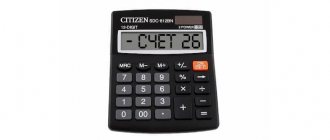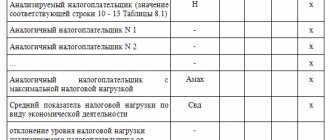An individual may carry out independent commercial activities after state registration. The procedure is of a notification nature, and no time limits are established by law. Opening an individual entrepreneur at the end of the year does not contradict the rules for registration. However, such a decision gives rise to some responsibilities. Assigning status several months, weeks or days before the end of the tax period does not give the entrepreneur any benefits. Declarations must be submitted on time, and fixed insurance premiums must be paid in full.
Conducting business after registration - right or obligation
The concept of entrepreneurial activity of a citizen is given in Article 23 of the Civil Code of the Russian Federation. And according to this norm, an individual has the right to engage in business after state registration. The right is not an obligation, especially since entrepreneurial activity is described in the laws as risky. Circumstances can always arise that prevent you from realizing a profitable idea.
However, the right to conduct business is correlated with certain responsibilities, the main of which are to submit reports and pay fees for yourself. Simply put, if you register as an individual entrepreneur without the intention of conducting real business, be prepared to incur costs to maintain this status.
You do not want? Then submit an application on form P26001 and deregister. Contributions will stop accruing, and after paying them and submitting the last reports, no one will have any claims against you. At the same time, you can go through the individual entrepreneur registration procedure again at any time.
How much should you pay to the budget if there is no activity?
Payments of individual entrepreneurs in the absence of activity are divided into two groups: insurance premiums for themselves and taxes in accordance with the chosen taxation system.
Contributions for yourself
If you have opened an individual entrepreneur and do not conduct any business, then you will not have income from the business. But this circumstance does not affect the fact that annually, no later than December 31, you need to transfer insurance premiums for yourself in a fixed amount. Specific figures are established by Article 430 of the Tax Code of the Russian Federation:
- for 2021 – 40,874 rubles;
- for 2022 – 43,211 rubles;
- for 2023 – 45,842 rubles.
The main part of these payments will be taken into account when calculating the entrepreneur’s insurance pension, i.e. These are not taxes, but certain investments for the future.
At the same time, the Tax Code of the Russian Federation has established grace periods during which insurance premiums are not charged in the absence of activity, but only in the presence of the following circumstances:
- parental leave for up to one and a half years;
- caring for an elderly person over 80 years old, a disabled person of group 1, a disabled child;
- military conscription service, etc.
If you know that you will find yourself in such a situation, send a statement in the prescribed form to your inspectorate in advance. Then the accrual of contributions will temporarily stop.
Another opportunity not to pay insurance premiums for oneself appeared for individual entrepreneurs quite recently. If, after registration, you switch to paying tax on professional income, then contributions can be paid on a voluntary basis.
However, some individual entrepreneurs see the obligation to pay contributions for themselves not as disadvantages, but as advantages. After all, when transferring these payments, the official insurance period for the future pension is formed. And if a person is not officially employed anywhere, then he can open an individual entrepreneur and not work specifically to form this length of service. Whether it is worth doing this is up to you, but the law does not prohibit it.
Taxes according to the selected regime
Do I have to pay taxes if I opened an individual entrepreneur but did not work? The answer to this question depends on which taxation system the entrepreneur chose after registration.
In the OSNO, simplified taxation system, unified agricultural tax and non-public income tax regimes, the obligation to pay taxes arises when there is taxable income. If the individual entrepreneur does not work and does not receive income, then taxes will not be required from such a business.
But if an entrepreneur has applied for a patent after registration, then he will have to pay a predetermined amount. The fact is that in this regime, it is not real income that is taxed, but potential income. Specific amounts are indicated in regional regulations governing the use of PSN on their territory.
Let's say you own a truck. You have decided to open an individual entrepreneur and make money from cargo transportation. Using the PSN calculator, we learned that the cost of a patent for the full year 2021 in the city of Stavropol is 60,000 rubles (the city is taken as an example, the tax in your locality will be different). We applied for and received a patent for cargo transportation.
But then everything went wrong - there were no clients for transportation right away, and there was no time to do business yet. However, the Federal Tax Service will not accept these excuses, but will demand payment for the cost of the patent. True, in this particular example, the calculated tax of an individual entrepreneur without employees will be significantly reduced due to insurance premiums for himself, which still must be paid.
Moreover, given that the potential annual income for this type of activity in Stavropol is 1 million rubles, you will have to transfer not only a fixed amount of 40,874 rubles, but also an additional contribution - 1% of the amount over 300,000 rubles of annual income. And it doesn’t matter that you didn’t receive real income, because on PSN the additional contribution is calculated from potential income. That is, the total amount of contributions in this example will be 47,874 rubles, and they can be completely deducted from the cost of the patent. In total, 47,874 rubles in contributions must be paid to the budget, plus 12,126 rubles for the patent.
In principle, a long-term patent can be abandoned early by filing an application on Form 26.5-4. Then you won’t have to pay for days of inactivity. However, in this case, it will be possible to obtain a new patent when resuming business only next year.
Thus, if you are not sure that you will start working immediately after registering an individual entrepreneur, you need to understand whether it is worth applying for PSN. And 1C:BO specialists will help you figure this out during a free consultation.
Free tax consultation
What are the consequences of lack of reporting: fines
Neglect of the rules results in monetary penalties. The sanction depends on the violation:
- No declarations. If an entrepreneur has not paid the tax, the fine will be 5% of the final obligation for each day of delay. The recovery should not exceed 30%. Transferring funds significantly mitigates the punishment. The sanction will be 1000 rubles.
- Failure to comply with the method of submitting documents. For violation, the taxpayer faces a fine of 200 rubles.
- Error in charges. Incorrect determination of the calculation basis, which led to an understatement of obligations to the budget, is punishable by a penalty of 20%.
The tax office has the right to suspend operations on the account of an entrepreneur who has not submitted reports.
What kind of reporting should an individual entrepreneur submit if there is no activity?
Tax returns are available in all taxation systems, except PSN and NPD. The deadlines and frequency for submitting reports are given in our tax calendar.
Please note that VAT returns are submitted only electronically, certified with an electronic signature. In this case, the solution for the OSNO payer may be to submit a single simplified declaration, which is accepted in paper form.
Reporting on insurance premiums is established only for employees. If the individual entrepreneur did not hire anyone and paid contributions only for himself, he does not need to report on this basis.
Who can count on tax holidays
Tax holidays are valid only for newly opened individual entrepreneurs that use the simplified tax system or special tax system. An entrepreneur must be registered after the law introducing holidays has been adopted in his region.
If an individual entrepreneur was previously deregistered, but then registered again, he does not lose the right to use this benefit. This is the position of the Supreme Court of the Russian Federation, with which the Ministry of Finance currently agrees (letter No. 03-11-11/904 dated January 15, 2019).
Only entrepreneurs who work in the following areas are entitled to holidays:
- production;
- the science;
- social sphere;
- domestic services;
- hotel business.
The share of individual entrepreneurs’ revenue from these types of activities for the tax period should be more than 70% of the total income.
Specific OKVED codes that give the right to benefits within the listed industries are established by the law of the subject of the Russian Federation. In addition, regional authorities may provide additional restrictions on the use of holidays - based on revenue and number of employees.
conclusions
Let's summarize the question: what to do if you opened an individual entrepreneur, but did not work.
- The status of an individual entrepreneur in itself does not provide any advantages, but it does impose certain responsibilities. You should not register with the Federal Tax Service just like that or for the future. You will always have time to register if the need really arises.
- After registration, individual entrepreneurs are registered with the Federal Tax Service and funds, so you need to pay your dues on time and submit reports according to the chosen regime.
- If you have submitted an application to switch to PSN, you will have to pay tax even in the absence of activity. In this case, it is safer to immediately switch to the simplified tax system, where tax is levied on real rather than estimated income.
- The mandatory amount of individual entrepreneur contributions for himself is constantly increasing. In 2021 it is 40,874 rubles, and then increasing. If you do not want to pay contributions for yourself without any business income, submit application P26001 and deregister. You don’t have to do this if you are not conducting business temporarily, for the reasons we listed above.
- Closing an individual entrepreneur does not cancel debts on insurance premiums and taxes, even if you did not actually run a business. The debts of the entrepreneur are transferred to the person who was registered in this capacity and are collected in court.
Examples of calculation of contributions if an individual entrepreneur is not registered from the beginning of the year
Let's say an entrepreneur registered with the Federal Tax Service on March 1, 2021 and worked until the end of the year. The calculation interval contains only full months. The fixed payment of contributions must be withdrawn for 10 months of 2021:
- For pension insurance. First, the contribution amount per calendar month is calculated - 2212.08 rubles. (26,545 / 12). At the next stage, the final value of the contribution for time worked in 2021 is calculated - RUB 22,120.80. (2212.08 * 10).
- For health insurance. The monthly contribution is 486.67 rubles. (5840 / 12), for the partially worked year 2021 you need to pay 4866.70 rubles. (486.67 * 10).
How to calculate taxes and contributions if there is an incomplete calendar month in the billing period? For example, an individual entrepreneur registered in March, but not on the 1st, but on the 12th. In this situation, there will be 9 full months, and 1 incomplete month (March). For March, you need to do the calculation by day. The final calculations will be as follows:
- For pension insurance. For 9 months you need to pay 19,908.75 rubles. (26,545 / 12 x 9). For March, the amount to be paid is 1427.15 rubles. (26,545 / 12 / 31 x (31 – 11)). The final amount of pension contributions is RUB 21,335.90. (1427.15 + 19,908.75).
- For health insurance. For 9 months, 4,380 rubles are payable. (5840 / 12 x 9). March contribution obligations amount to RUB 313.98. (5480 / 12 / 31 x (31-11)). The total amount is 4693.98 rubles. (4380 + 313.98).
Read also: Individual entrepreneur taxes in 2021 for themselves






